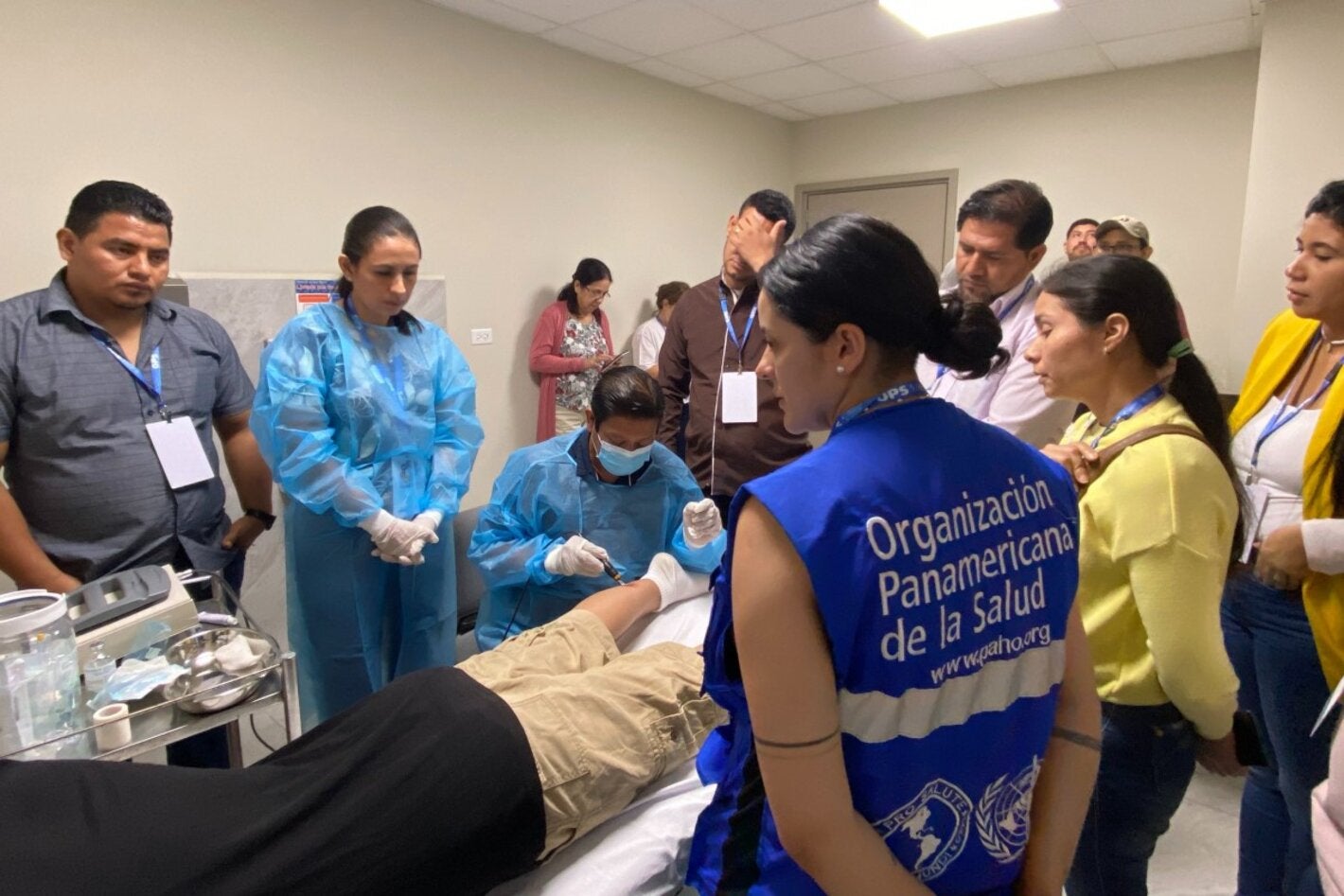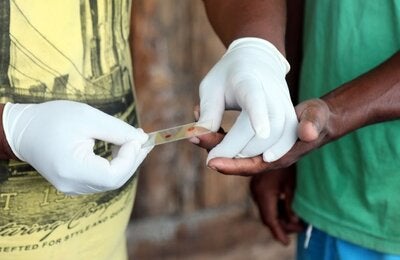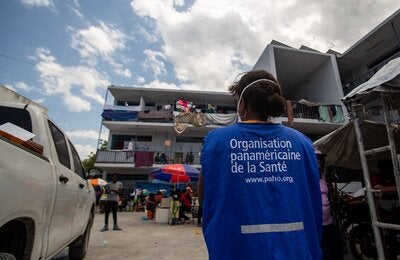
Washington, DC, 18 December 2023 (PAHO)- With the support of the Pan American Health Organization (PAHO), Ecuador, Honduras, Nicaragua, and Venezuela have begun to implement new therapies to treat cutaneous leishmaniasis, a disease that affects around 42,000 people each year in Latin America and which can leave disfiguring scars.
Leishmaniasis is caused by parasites transmitted through the bite of infected female insects. In its most common form, cutaneous, it causes ulcers or nodules on the skin. The disease is endemic in 18 countries of the Americas, with the poorest people in remote and hard-to-reach tropical areas most at risk.
Currently in the region, most patients with cutaneous leishmaniasis receive a systemic treatment. This traditional treatment, which has been in use for more than 70 years, consists of a series of intravenous injections for 20 days. Despite its efficacy, the treatment can have side effects, such renal and hepatic function alteration or arrhythmia.
In September 2022, PAHO updated its guidelines for the treatment of leishmaniasis, which include localized therapy to treat cutaneous cases with the drug meglumine antimoniate, as well as the use of thermotherapy.
Thermotherapy generates high-frequency waves that are applied locally over the lesion at a temperature of 50º Celsius for a period of 30 seconds. The treatment consists of a single session and generates savings for the health system as well as for the affected persons and their families. The earlier the care is sought, the greater the possibility for opting for this treatment alternative.
"Localized treatment with thermotherapy or intralesional treatment have proven to be effective, safe, and less costly and painful for patients," Dr. Ana Nilce Elkhoury, PAHO regional advisor on leishmaniasis said. Several countries are updating their protocols to use these treatments as a therapeutic option.
Since the update in guidance, PAHO has donated thermotherapy equipment to Ecuador, Honduras, Nicaragua and Venezuela and provided training to health personnel on its use. This equipment is also available for purchase for countries in the region through PAHO's Regional Revolving Funds.
PAHO also "plans to provide technical cooperation to more countries to expand access to treatment for the people who need it most," Dr. Elkhoury added, as well as to "treat at least 90% of patients" diagnosed with cutaneous leishmaniasis.
Leishmaniasis is one of more than 20 neglected tropical diseases that the World Health Organization (WHO) and PAHO seek to prevent, control, eliminate or eradicate by 2030.



